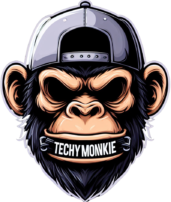Introduction
When most people think of blockchain, they immediately associate it with cryptocurrencies like Bitcoin. However, blockchain technology has far-reaching applications beyond digital currencies. From supply chain management to voting systems, blockchain is poised to revolutionize various industries. In this blog post, we’ll explore the real-world applications of blockchain technology and how it is transforming different sectors.
What is Blockchain?
Blockchain is a decentralized ledger technology that records transactions across multiple computers. This ensures that the data is secure, transparent, and immutable. Each block in the chain contains a list of transactions, and once a block is added, it cannot be altered without altering all subsequent blocks, making the system highly secure.
Real-World Applications
1. Supply Chain Management
Blockchain can enhance transparency and traceability in supply chains. By recording every transaction on a blockchain, companies can track the journey of products from the manufacturer to the consumer. This can help in identifying and resolving issues such as counterfeit goods and inefficiencies in the supply chain.
2. Healthcare
In healthcare, blockchain can be used to securely store and share patient records. This ensures that patient data is accurate and accessible to authorized healthcare providers, improving the quality of care. Additionally, blockchain can help in tracking the supply chain of pharmaceuticals, ensuring the authenticity of drugs.
3. Voting Systems
Blockchain technology can make voting systems more secure and transparent. By recording votes on a blockchain, it becomes nearly impossible to alter or tamper with the results. This can increase voter confidence and reduce the risk of fraud in elections.
4. Real Estate
Blockchain can simplify the process of buying and selling real estate by providing a transparent and immutable record of property transactions. This can reduce the need for intermediaries, lower transaction costs, and speed up the process.
5. Intellectual Property
Blockchain can be used to protect intellectual property rights by providing a secure and transparent record of ownership. This can help in preventing unauthorized use and ensuring that creators receive fair compensation for their work.
Benefits of Blockchain
- Transparency: Blockchain provides a transparent record of transactions, which can be accessed by all participants in the network.
- Security: The decentralized nature of blockchain makes it highly secure and resistant to tampering.
- Efficiency: By eliminating intermediaries and automating processes, blockchain can reduce costs and increase efficiency.
- Traceability: Blockchain allows for the traceability of products and assets, which can help in identifying and resolving issues.
Challenges and Considerations
While blockchain holds great promise, it also faces several challenges:
- Scalability: Blockchain networks can become slow and inefficient as the number of transactions increases.
- Regulatory Uncertainty: The regulatory environment for blockchain technology is still evolving, which can create uncertainty for businesses.
- Interoperability: Different blockchain networks may not be compatible with each other, which can limit their effectiveness.
- Energy Consumption: Blockchain networks, particularly those that use proof-of-work consensus mechanisms, can consume significant amounts of energy.
Conclusion
Blockchain technology has the potential to transform various industries by providing secure, transparent, and efficient solutions. While there are challenges to overcome, the benefits of blockchain are undeniable. As the technology continues to evolve, we can expect to see even more innovative applications in the future.
Call to Action
Stay updated with the latest advancements in blockchain technology by subscribing to our newsletter. Have any thoughts or questions on this topic? Leave a comment below and join the discussion!




